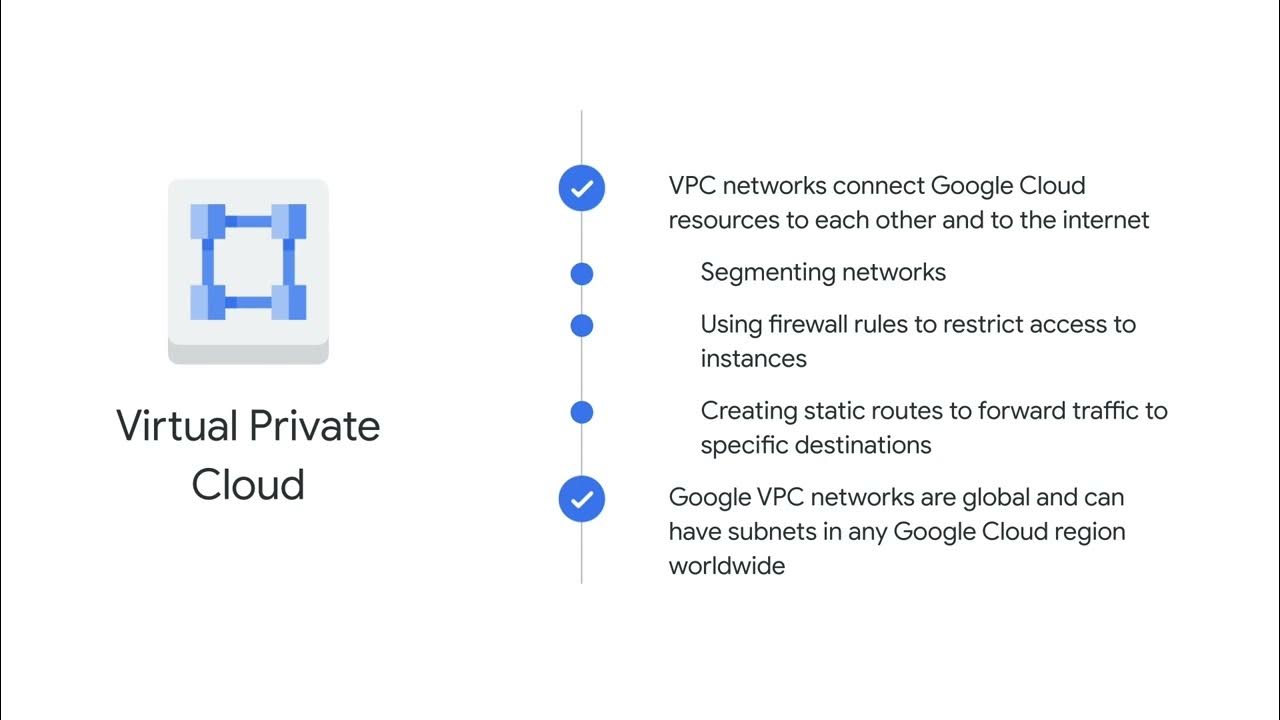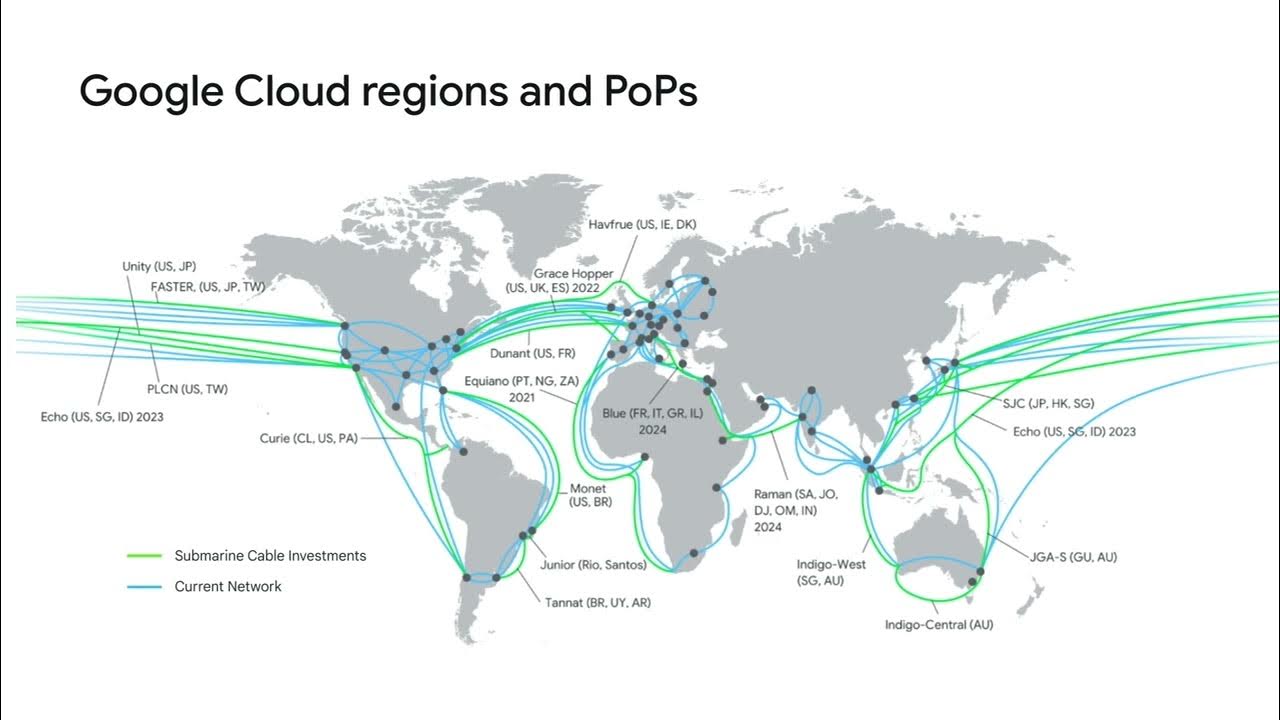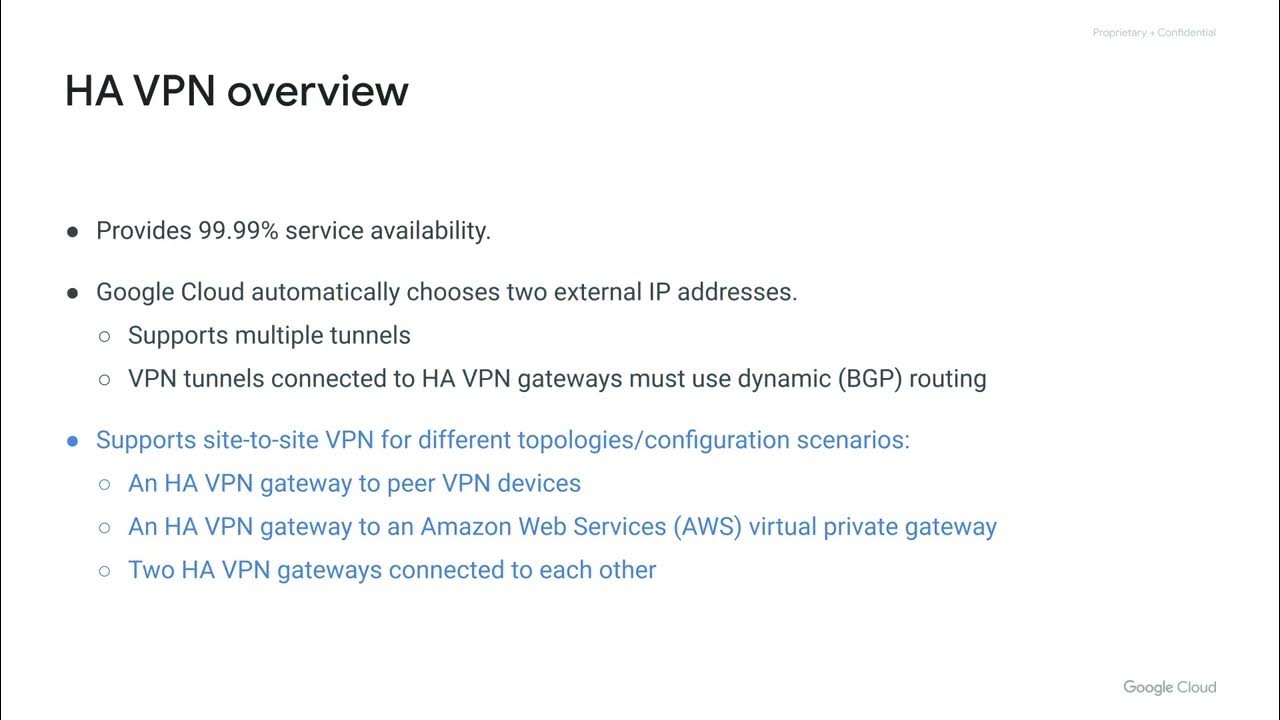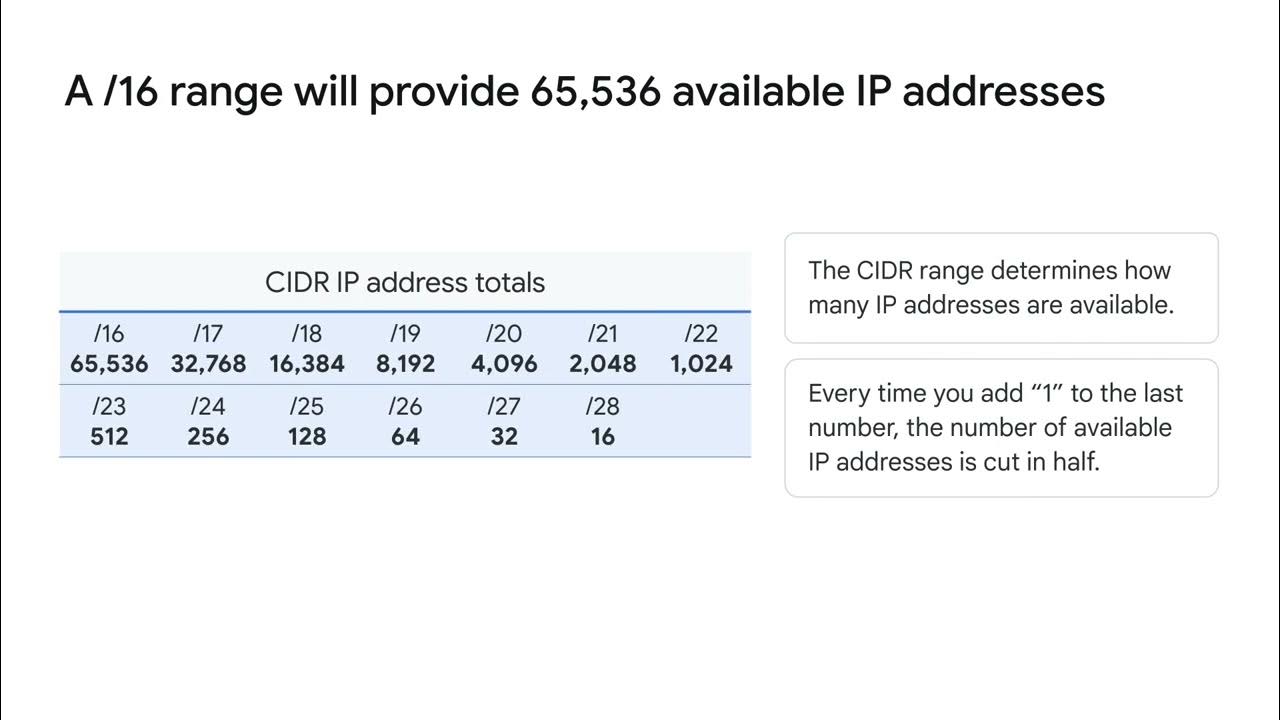What is a Virtual Private Cloud?
Summary
TLDRRyan Sumner, Chief Network Architect at IBM Cloud, explains the concept of 'Virtual Private Cloud (VPC)', a public cloud service that allows users to create and control isolated virtual networks for cloud resources. He discusses the standard public cloud network deployment, including backbone, segmentation, routers, firewalls, and network functions like NAT and VPN. VPC offers these capabilities as a service, enabling users to manage network functions through a UI, CLI, or API without proprietary interfaces. Benefits include security, scalability, customization, and agility, enhancing developers' efficiency and potentially saving costs.
Takeaways
- 🌐 VPC stands for 'Virtual Private Cloud', a public cloud service that allows users to define and control isolated virtual networks for cloud resources.
- 🔍 In a standard public cloud, a backbone carries traffic with segmentation to separate clients and applications, using routers for communication and firewalls for traffic control.
- 🔒 VPC provides network isolation, enhancing security by preventing connectivity between networks unless explicitly allowed.
- 🛠️ Traditional cloud environments use appliances for network functions, which require infrastructure or network administrators to manage.
- 📱 Virtual networking introduces network functions as a service, allowing users to create and manage these functions through a UI, CLI, or API without proprietary interfaces.
- 📈 VPC enables scalability, offering the ability to create and manage multiple networks and services as needed.
- 🛑 Users have the flexibility to customize their network segmentation and can easily modify or tear down their network configurations.
- 🔌 VPC supports connectivity to the enterprise and the internet, with services for VPN and NAT-ing provisioned as needed.
- 💡 The benefits of VPC include built-in security, scalability, customization, and flexibility, which can contribute to cost savings.
- 🚀 VPC allows developers to be more agile, potentially leading to faster development cycles and more efficient use of resources.
- 📚 Understanding VPC is essential for anyone on their public cloud journey, as it provides control and security for cloud-based applications and resources.
Q & A
What does VPC stand for in the context of cloud computing?
-VPC stands for Virtual Private Cloud, which is a public cloud capability that allows users to define and control isolated virtual networks and deploy cloud resources into those networks.
Why is understanding virtual networks important for someone on their public cloud journey?
-Understanding virtual networks is important because it helps users to create isolated environments for their applications, ensuring security and customization, which are crucial for a successful public cloud deployment.
What is the backbone in the context of deploying networks in a standard public cloud?
-The backbone is the central part of the network that carries all the traffic in the cloud. It is essential for creating a foundation for network segmentation and communication between different segments.
What is the role of a router in a segmented cloud network?
-A router in a segmented cloud network allows communication between different segments. It is a network function that manages the flow of data between various parts of the network.
How does a firewall function in a cloud-defined network?
-A firewall in a cloud-defined network provides filtering capabilities, controlling the traffic flow between segments and ensuring that only authorized communication is allowed, enhancing security.
What is NAT-ing and why is it needed for internet connectivity in a cloud environment?
-NAT-ing, or Network Address Translation, is a method used to map private IP addresses in a network to public IP addresses. It is needed for internet connectivity in a cloud environment to allow the cloud-hosted applications to communicate with the internet while maintaining the privacy of the internal network.
What is a VPN function and how does it extend an enterprise in a cloud context?
-A VPN function, or Virtual Private Network, allows for secure communication between a cloud environment and an on-site enterprise. It extends the enterprise by creating a private, encrypted connection over the public internet, enabling data access and communication.
How do traditional cloud environments handle network functions like routers, firewalls, and NAT-ing?
-In traditional cloud environments, network functions like routers, firewalls, and NAT-ing are handled by appliances. Infrastructure or network administrators use proprietary interfaces to define the flows and controls for these functions.
What is the difference between traditional network functions and virtual networking in terms of user control and interface?
-Virtual networking introduces network functions as a service, allowing users to create and manage these functions through a user interface (UI), command-line interface (CLI), or application programming interface (API), without the need for proprietary interfaces used in traditional network functions.
What are some benefits of using a VPC for developers?
-Some benefits of using a VPC for developers include enhanced security through isolation, scalability due to cloud capabilities, customization of network segmentation, and flexibility to add virtual segmentation or enterprise connectivity as needed, which can lead to increased agility and potential cost savings.
How does the ability to customize and scale network functions in a VPC contribute to developer agility?
-The ability to customize and scale network functions in a VPC allows developers to quickly adapt their network environments to meet changing requirements. This flexibility enables them to deploy, modify, or tear down network configurations as needed, contributing to faster development cycles and better resource utilization.
Outlines

此内容仅限付费用户访问。 请升级后访问。
立即升级Mindmap

此内容仅限付费用户访问。 请升级后访问。
立即升级Keywords

此内容仅限付费用户访问。 请升级后访问。
立即升级Highlights

此内容仅限付费用户访问。 请升级后访问。
立即升级Transcripts

此内容仅限付费用户访问。 请升级后访问。
立即升级5.0 / 5 (0 votes)






